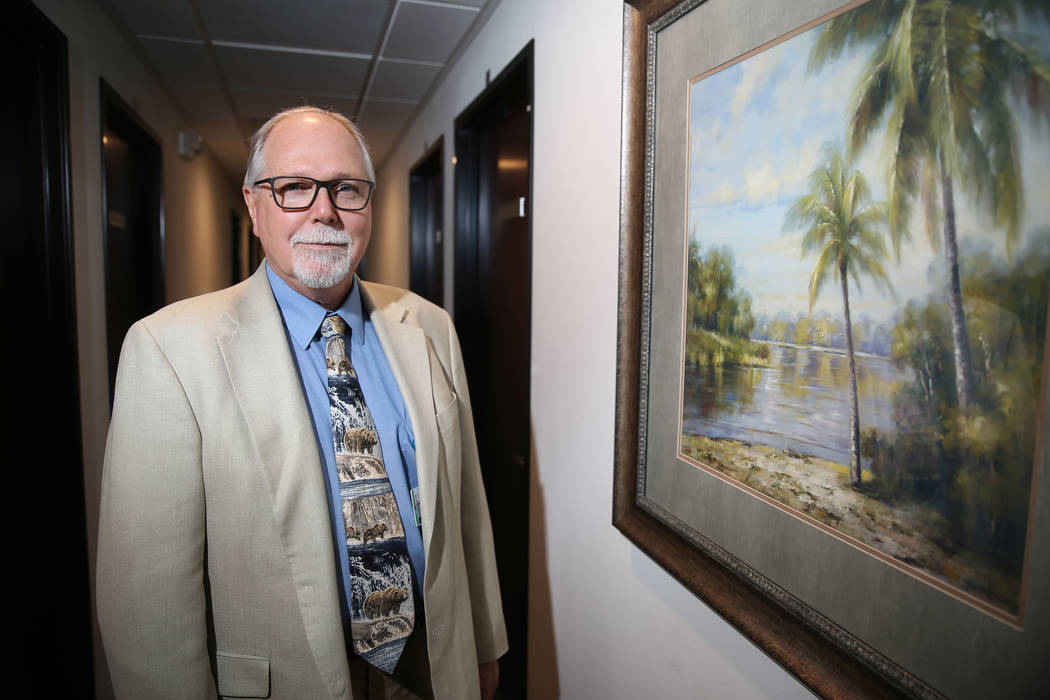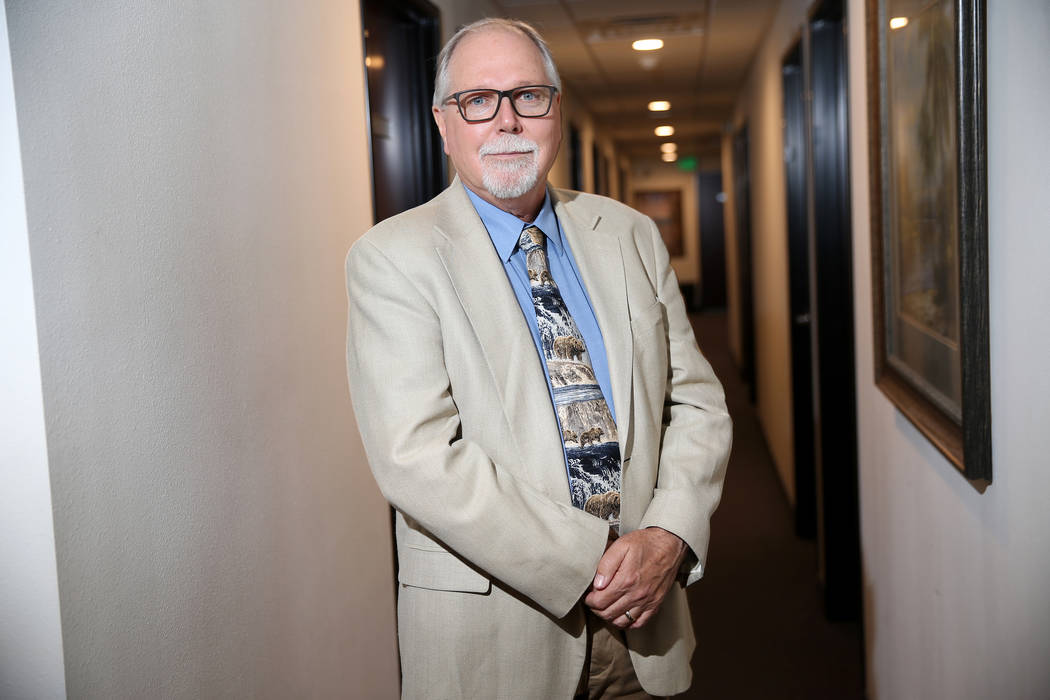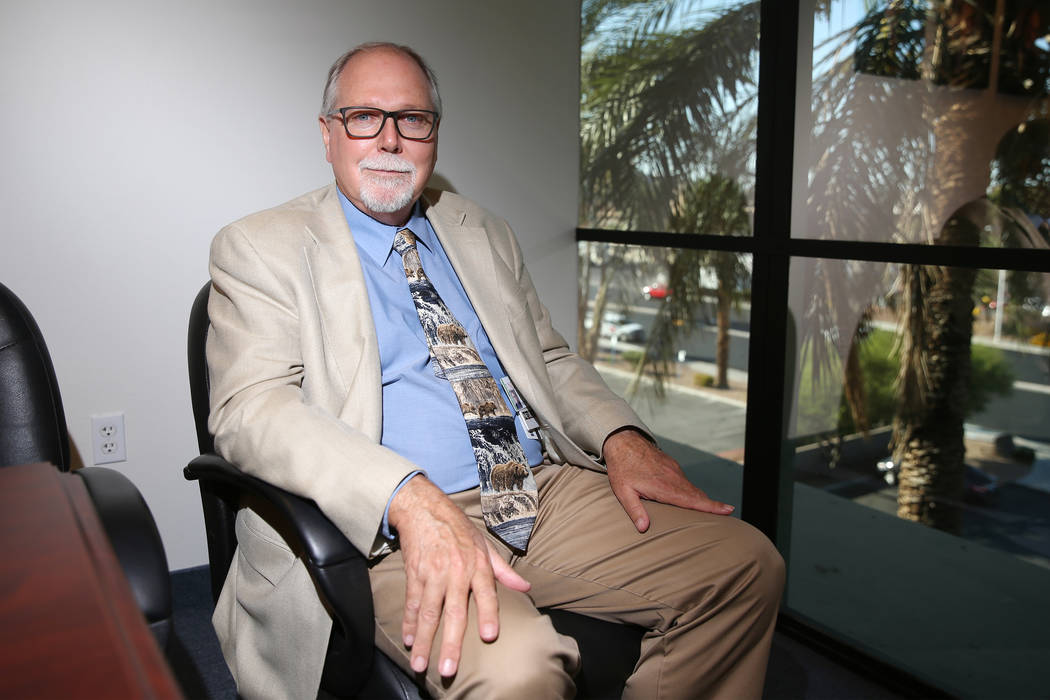Nevada could feel pain from plan to change kidney donation rules
Proposed changes to federal rules that govern which patients receive life-saving kidneys for transplant could increase the wait time in Southern Nevada to as long as a decade, according to a Las Vegas transplant surgeon.
The current rules give preference to Southern Nevadans to receive kidneys donated in Southern Nevada. Under the proposed changes, this preference would be weakened, meaning that many of these kidneys could instead by distributed within 500 nautical miles of Las Vegas — to California, Oregon, Idaho, Wyoming, Utah, Colorado, New Mexico and even the westernmost part of Texas.
The rule change would be “disastrous” for Southern Nevada, said Dr. John Ham, the medical director of University Medical Center’s Center for Transplantation, which operates the state’s only transplant program. “It’s a human travesty if we’re going to lose a lot of organs that we normally have.” He said the views he expressed were his own and not necessarily UMC’s.
The philosophy behind the proposed change is “to make the national policy more equitable no matter where (patients) live,” said Anne Paschke, a spokeswoman for the United Network for Organ Sharing (UNOS), a private nonprofit that manages the U.S. organ transplant system under contract with the federal government.
Organ donations prevalent in Nevada
But Ham sees unfairness in not allowing organs donated in Southern Nevada to stay in Southern Nevada.
The rule change would shorten wait times in areas where there are fewer organ donations, such as California and New York, while increasing the wait in places where there are more organ donations, such as Southern Nevada, he said.
The wait time in Southern Nevada is currently 1 ½ to 3 years, Ham said. According to a summary of the proposal, wait times in areas of California are as long as 10 years.
The comparatively short wait time in Southern Nevada reflects how the community has supported organ donation, Ham said.
Southern Nevada’s organ procurement organization, the Nevada Donor Network, has been very successful in creating a framework that supports organ donation in Southern Nevada, including building relationships with area hospitals and encouraging residents to become organ donors.
Ham said that regulators should get to the root of the kidney shortage by examining why some states fail to secure an adequate number of donated organs.
“They haven’t looked at all the programs that are compounding the problem,” said Ham, who has performed more than 1,000 kidney transplants. “If you’re going to make equity in sharing, you need to make equity in procurement first.”
Paschke said it was expected that increases in wait times in Southern Nevada would be small but did not provide an estimate.
Number of kidneys would shrink
Data included in the proposal estimate that the number of kidneys available in Southern Nevada on an annual base would decrease from 89 to 23, which Ham said suggests dramatically longer wait times.
He sees another problem with the proposal. Just as kidneys would be leaving Southern Nevada for other states, kidneys from other states could be coming to Southern Nevada. And transporting kidneys longer distances can result in less than optimal outcomes, Ham said.
“I can’t think of any good reason to like this (proposal),” Ham said.
Nevada Donor Network President and CEO Joseph Ferreira said his organization remains “committed to partnering with transplant programs all over the country … to adapt to any changes in allocation policy by developing innovative new approaches for increasing transplantation in Nevada.”
There are about 200 people waiting for kidneys in Southern Nevada and roughly 100,000 across the country.
Public comment is being taken until Oct. 2 at https://optn.transplant.hrsa.gov/. The proposal, if ultimately approved, could go into effect in December 2020.
Contact Mary Hynes at mhynes@reviewjournal.com or 702-383-0336. Follow @MaryHynes1 on Twitter.

























